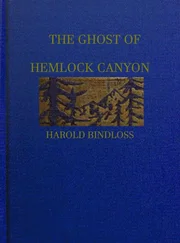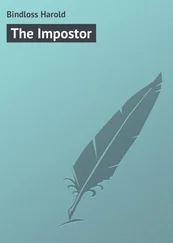Harold Bindloss - The Dust of Conflict
Здесь есть возможность читать онлайн «Harold Bindloss - The Dust of Conflict» — ознакомительный отрывок электронной книги совершенно бесплатно, а после прочтения отрывка купить полную версию. В некоторых случаях можно слушать аудио, скачать через торрент в формате fb2 и присутствует краткое содержание. Жанр: foreign_prose, на английском языке. Описание произведения, (предисловие) а так же отзывы посетителей доступны на портале библиотеки ЛибКат.
- Название:The Dust of Conflict
- Автор:
- Жанр:
- Год:неизвестен
- ISBN:нет данных
- Рейтинг книги:4 / 5. Голосов: 1
-
Избранное:Добавить в избранное
- Отзывы:
-
Ваша оценка:
- 80
- 1
- 2
- 3
- 4
- 5
The Dust of Conflict: краткое содержание, описание и аннотация
Предлагаем к чтению аннотацию, описание, краткое содержание или предисловие (зависит от того, что написал сам автор книги «The Dust of Conflict»). Если вы не нашли необходимую информацию о книге — напишите в комментариях, мы постараемся отыскать её.
The Dust of Conflict — читать онлайн ознакомительный отрывок
Ниже представлен текст книги, разбитый по страницам. Система сохранения места последней прочитанной страницы, позволяет с удобством читать онлайн бесплатно книгу «The Dust of Conflict», без необходимости каждый раз заново искать на чём Вы остановились. Поставьте закладку, и сможете в любой момент перейти на страницу, на которой закончили чтение.
Интервал:
Закладка:
Harding did not seem in the least astonished; in fact, his very impassiveness had its humorous aspect, as Appleby recognized.
“Did you kill the man?” he asked.
“No,” said Appleby, “I did not even attempt it; though in the face of circumstances I think nobody would believe me. Still, that’s a story I can’t go into, though it seemed the correct thing to mention it to you.”
Harding nodded gravely. “The straight road is the shortest one, though it’s quite often steep,” he said. “Now, I had a notion you had some difficulty of that kind.”
“I don’t know that there is anything in my appearance which especially suggests the criminal.”
“Well,” said Harding, with a little laugh, “you didn’t seem quite sure of your own name when you told it me; but I’ve handled a good many men in my time, and found out how to grade them before I began. I wasn’t very often wrong. Now, it seemed to me there was no particular meanness about you, and homicide isn’t thought such a serious thing in my country, when it’s necessary. Before I was your age I had to hold on to all I had in the world with the pistol one night down in New Mexico – and I held on.”
His face grew a trifle grim, but Appleby was glancing out towards the saffron glare of sunset on the ocean’s rim. “I want to live in the open, and see what the life men lead outside your cities is like,” he said. “There is nobody to worry about me, and I don’t mind the risks. Can you suggest anything with a chance of dollars in it a little outside the beaten track?”
“You speak Spanish?”
“I was born at Gibraltar, and lived in Spain until I was ten years old.”
“Well,” said Harding, “as it happens, I can suggest something that might suit you, though I would rather, in spite of what you told me, have found you a business opportunity. The men who play the game will want good nerves, but there are dollars in it for the right ones. It’s running arms to Cuba.”
A little gleam crept into Appleby’s eyes, and he flung up his head. “I think,” he said quietly, “that is the very thing I would have wished for.”
“Then,” said Harding, “I’ll give you a letter to some friends of mine in Texas.”
He went away by and by, and Appleby decided that the cost of his saloon passage had been a good investment. Still, he wondered what Harding could have to do with such a risky business as he surmised the smuggling of arms into Cuba must be, until he strolled round the deck with his daughter in the moonlight that evening.
“I think you have made a useful friend to-day,” she said.
Appleby looked at her with a little astonishment, and the girl smiled when he said, “I don’t understand.”
“I mean Cyrus P. Harding. There are quite a number of men with dollars anxious to be on good terms with him.”
“What have I done to please him?”
“You wouldn’t come to Glenwood,” and the girl laughed again. “No, I don’t mean that exactly, but I need not explain. Cyrus P. Harding never did a mean thing in his life, you see.”
Appleby smiled at her. “So one would surmise. In my country we rather believe in heredity.”
“Pshaw!” said the girl. “There really isn’t much in compliments when they’re served out all round. But if you are going to Cuba I may see you there.”
“Will you be in Cuba?”
Nettie Harding nodded. “My father has no end of dollars there – in tobacco and sugar.”
“I wonder if one could ask what induced Mr. Harding to invest money in such an unsettled country as Cuba is just now?”
Nettie Harding looked up at him confidentially. “It’s a thing I wouldn’t tell everybody, and if I did I shouldn’t be believed,” she said. “Well, Cyrus Harding can see ever so far ahead, and I never knew him mistaken yet. Some day something will happen in Cuba that will give us an excuse for turning the Spaniards out and straightening things up. They need it.”
“But if the thing doesn’t happen?”
Nettie Harding laughed. “Then I shouldn’t wonder if he and a few other men made it.”
Some of her companions joined them, and she said nothing more to Appleby; but they met again that evening, and she induced him to promise that he would spend at least one day at Glenwood, while when they disembarked in New York Harding walked down the gangway with his hand on Appleby’s shoulder as though on excellent terms with him. He also kept him in conversation during the Customs searching, and when a little unobtrusive man sauntered by said to the officer, “Can’t you go through this gentleman’s baggage next? He is coming to Glenwood with me.”
The unobtrusive man drew a little nearer, glancing at Appleby, and then touched Harding’s shoulder.
“Is that gentleman a friend of yours, Mr. Harding?” he asked.
“Of course,” said Harding. “He is staying with me. We have business on hand we couldn’t fix up at sea.”
Appleby caught his warning glance, and stood very still with his heart thumping, apparently gazing at something across the shed, go that the man could only see the back of his head.
“In that case, I guess I’m wasting time,” said the man, who laughed. “Still, you understand we have to take precautions, Mr. Harding.”
He went away, and Appleby turned to Harding with a little flush in his face as he asked, “Who is that man?”
“That,” said Harding, with a dry smile, “is one of the smartest of our New York detectives.”
They reached his house at Glenwood that afternoon, and Appleby spent two pleasant days there. On the third he left for New York, and Nettie Harding smiled as she shook hands with him.
“I wonder whether we shall see you in Cuba?” she said.
“It will not be my fault if you do not,” said Appleby. “I am heavily indebted to you and your father.”
As it happened, he afterwards saw Nettie Harding in Cuba, and paid his debt; for Appleby, who had gone out under a cloud that Tony’s sweetheart might retain her faith in him, was one of the men who do not take the kindness that is offered them and immediately forget.
VI – THE SCHOONER “VENTURA”
THE night was considerably clearer than anybody on board her desired when the schooner “Ventura” headed for the land. It rose in places, black and sharp against the velvety indigo, over her dipping bows, though most of the low littoral was wrapped in obscurity. Harper, the American skipper, leaned upon the helm watching the growing brightness in the east, and a man whose white garments cut against the dusky sea sat upon the rail close beside him. They were both anxious, for there were no lights on that strip of Cuban coast, and the “Ventura” had drifted with the stream in a calm which had complicated Harper’s reckoning. He had to find a certain reef-studded bay, and run the schooner into a creek among the mangroves without being seen by the gunboat which he had reason to surmise was looking out for him.
Forward, a cluster of men were sitting about the windlass and leaning on the rail. They were of diverse nationality and doubtful character – American, Castilian, and African by extraction, though in the case of some of uncertain color it would have been difficult to decide which blood predominated in their veins. It was their task to supply the insurgents with the munitions of war, and they undertook it dispassionately, without any patriotic convictions, for the dollars it would bring. Indeed, most of them were not held in much esteem in the countries they belonged to, or they would not in all probability have been there on board the “Ventura.”
Appleby watched them languidly from where he sat behind the wheel, and wondered what lay before him when he glanced towards the dusky coast-line. He was, however, not unduly anxious, for he had cut himself adrift from the cramped life he had led, and as yet found the new one pleasant. It needed qualities he felt he possessed, and which, indeed, he had with difficulty held in due subjection in England; while the fact that it might at any time terminate suddenly caused him no great concern. In the meanwhile the risks and opportunities attached to it had their charm for one who had long found poverty and the restraints of conventionality irksome.
Читать дальшеИнтервал:
Закладка:
Похожие книги на «The Dust of Conflict»
Представляем Вашему вниманию похожие книги на «The Dust of Conflict» списком для выбора. Мы отобрали схожую по названию и смыслу литературу в надежде предоставить читателям больше вариантов отыскать новые, интересные, ещё непрочитанные произведения.
Обсуждение, отзывы о книге «The Dust of Conflict» и просто собственные мнения читателей. Оставьте ваши комментарии, напишите, что Вы думаете о произведении, его смысле или главных героях. Укажите что конкретно понравилось, а что нет, и почему Вы так считаете.












